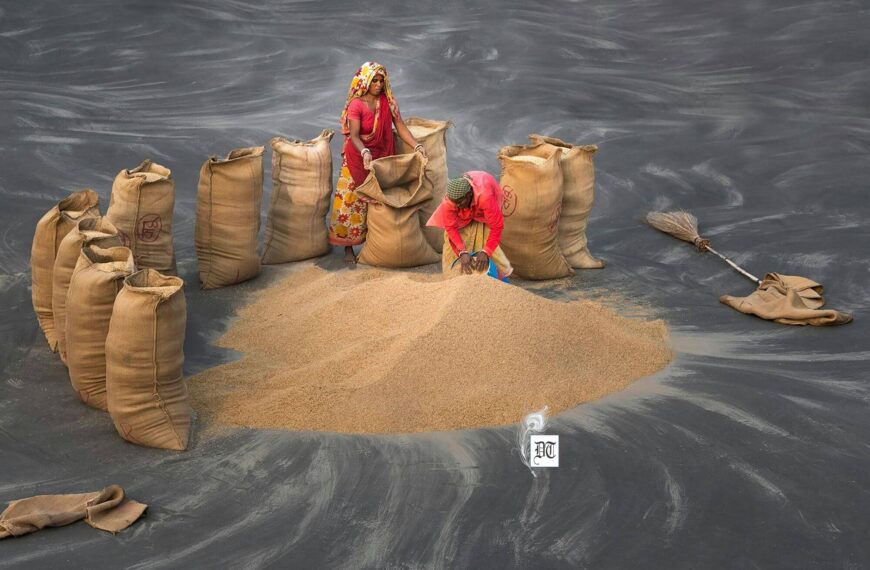Twelve women, including Hana Mohsin Khan, a pilot, Nazia Erum, founder of The Luxury Label, Rana Safvi, historian and writer, and Rukhsaar Salem, founder of Mother Digest, decided to channelise their anger to bring around a message of peace and harmony. Here’s an Iftar with a difference, where Hindu women, with vermillion and those with gararas came together to enjoy the spirit of Ramzaan. We are introducing a new weekly column, from this Wednesday, by our columnist Mahima, a Delhi-based journalist, exclusively in Different Truths.
‘Muslim’ or Islam, the religion in today’s scenario is being associated with terrorism and hatred. This so, just because a few drifted away from the actual path and chose to let down the Prophet Mohammad and his preaching of One Supreme Power, who blesses the mankind alike.
Cut to Muslim women, the term that is being associated and imagined as Burqa-clad females, who shadow their counterparts and have no say, even in decisions regarding their own lives.
But today, I will tell you the real life story of few amazing women, who decided to change the mindset of people not only towards their religion but the women practicing Islam. What they did sets an example for millions to follow.
Twelve women, including Hana Mohsin Khan, a pilot, Nazia Erum, founder of The Luxury Label, Rana Safvi, historian and writer and Rukhsaar Salem, founder of Mother Digest, decided to channelise their anger to bring around a message of peace and harmony.
“I have watched in horror and dismay, the political climate in India getting hostile by the passing day. I feel the only way to combat hatred is with love,” says Hana Mohsin Khan whose house in Noida, Uttar Pradesh was abuzz with laughter and joy earlier this week.
And this happened in the same Uttar Pradesh, where, these days, people from her community feel unsafe due politics and violence around the beef ban.
Anyway, what we are talking about here is not just Iftar, but an initiative by these women, who are trying to break stereotypes and change the manner women from their community are perceived. Yes, generally it is the men who invite people over for Iftar and women just shadow them from inside their Burqa.
But at Hana’s house, a female dominated Iftar came as a breather of fresh air.
A jubilant Hana tells us, “All the co-hostesses were educated Muslim women including a biker, journalists, writers, historians. I am a pilot. We wanted to break stereotypes. We aren’t just what the media tells you. We are change makers and this inter-religion Iftar is just our first step. It was a beautiful evening. I think it’s going to stay close to my heart always and I am looking forward to continuing hosting it every year.”
Nazia Erum informs, “It was a true community effort where 12 Muslim women cooked with love and enjoyed the meal with over 50 guests, most of whom had never been to an Iftar or even to a Muslim household before.”
Indeed for such people, it was an amazing change that Hana and her friends aim to bring around in the mindset.
“I grew up in an atmosphere where as kids we celebrated each other’s festivals and realised the meaning of brotherhood. By hosting this Iftar, we just want to materialise that upbringing in the next generation,” asserts historian Rana Safvi.
My minds drifts to how the next generation is growing up. The very thought sends shivers down my spine, as Rana goes on to say, “Today, children are growing up in silos unaware of each other’s traditions giving rise to the actual ‘other’.”
I am forced to think, what about that ‘other’? That ‘other’ is being objectified and used by certain people with personal, inhuman motives to deepen the divide. My hands were cold imagining beyond, which I would refrain from detailing here since, in the present day atmosphere, there is no end to wild imagination.
But then, in my case, I thank my stars, at least my child, whenever born, will not grow up in silos away from the ‘other’. Why? Because I married ‘the other’. Yes, my husband is a Muslim and both families respecting others’ beliefs will ensure that my child grows up to be a human being, an Indian.
And spontaneously, I unconsciously start humming the classic from Dhool Ka Phool (1959), “Tu Hindu banega na Musalman banega, Insaan ki Aulaad hai, Insaan Banega.”
“But how many get a chance to be brought up like that today,” questioned Rana. “Thus, such get together is an excellent opportunity to express that it is not the ‘other’, it is ‘we’.”
No wonder, the guests echoed the same sentiments, some of whom turned nostalgic recalling their happy, undivided childhood.
“We need to do these interfaith gatherings more and more to contribute our bit for breaking stereotypes and bring positivity in current times,” said a determined Rukhsar Salem.
While the Iftar ended on a happy note and into new and stronger bonds, my day ended on a different truth…the truth of real India – the ‘two colours’ of the Flag, which stand United with the ‘White’!
Jai Hind! Ramzaan Mubarak, everyone!
©Mahima Sharma
Photographs sourced by the author.
#Ramzaan #RamzaanMubarak #Iftar #InterReligion #CommunalHarmony #Harmony #Peace #DifferentTruths





 By
By

